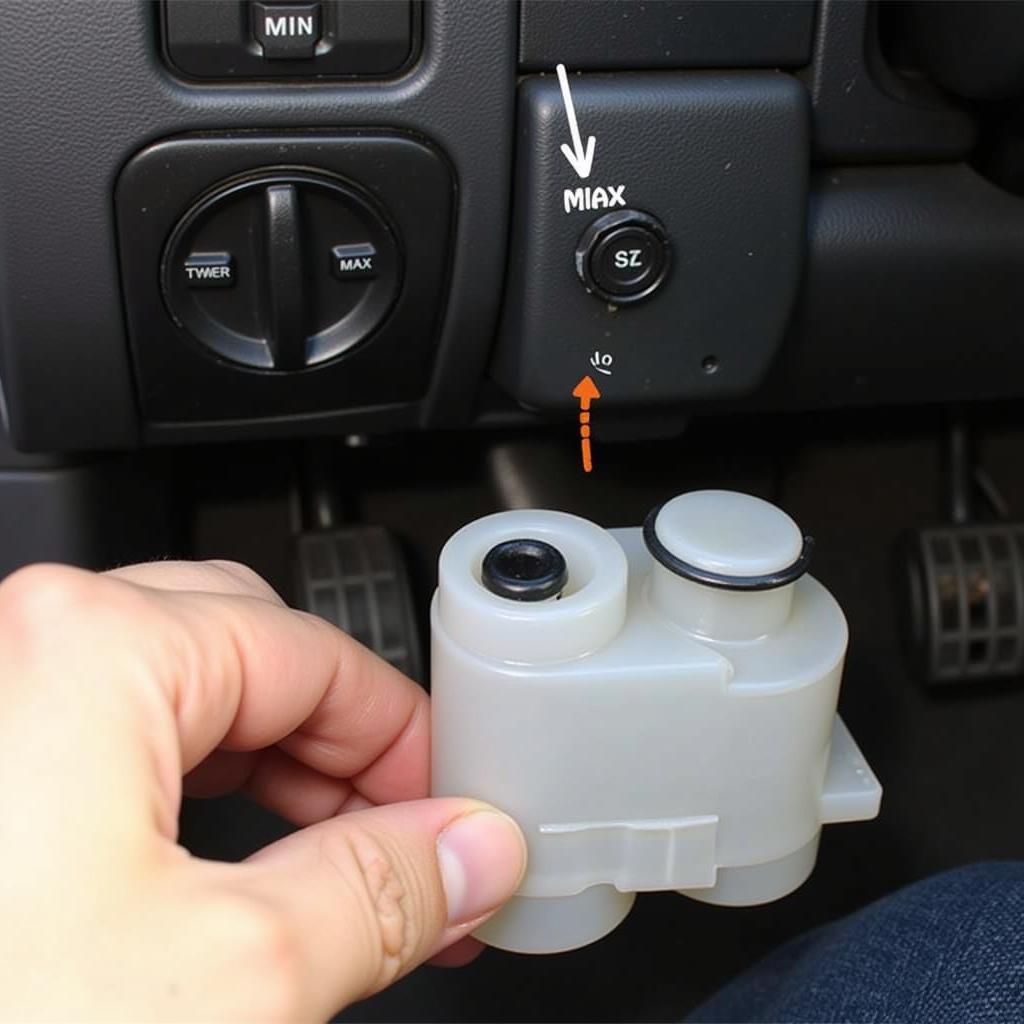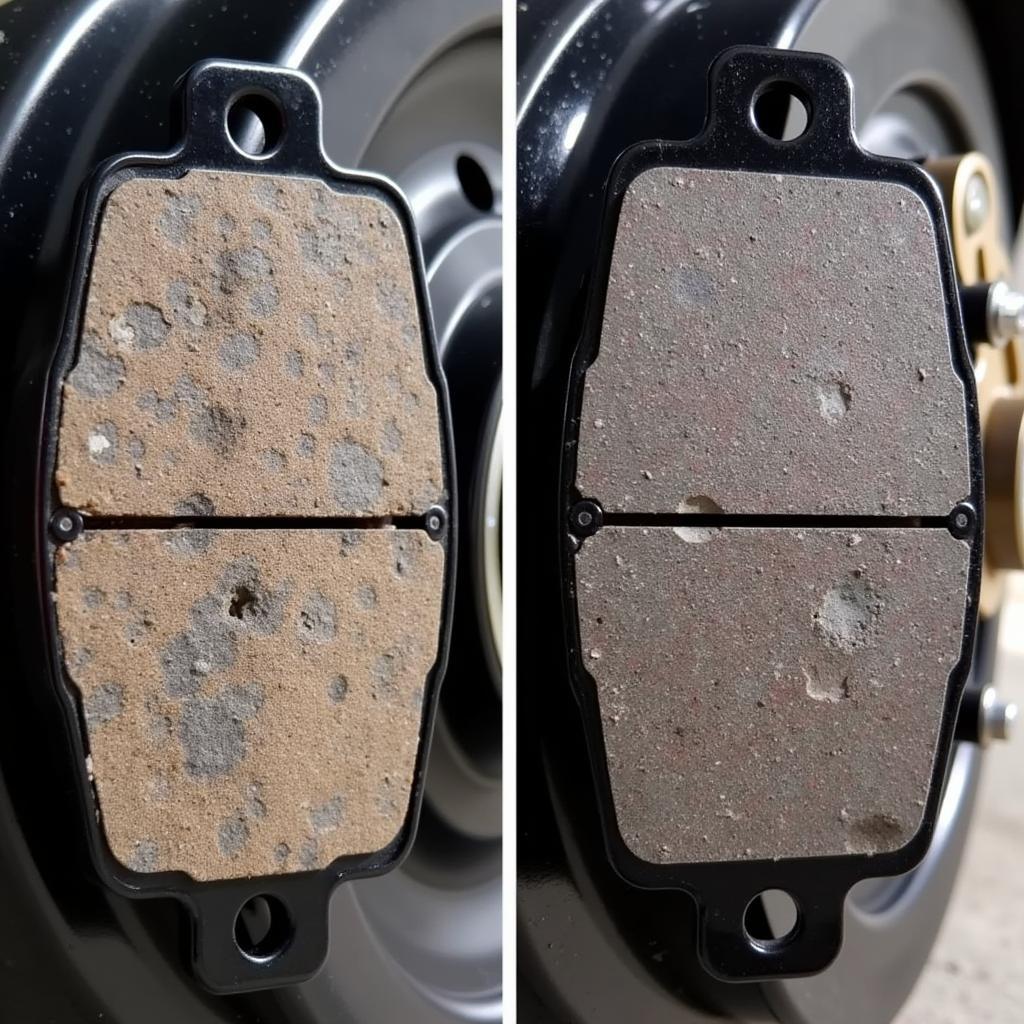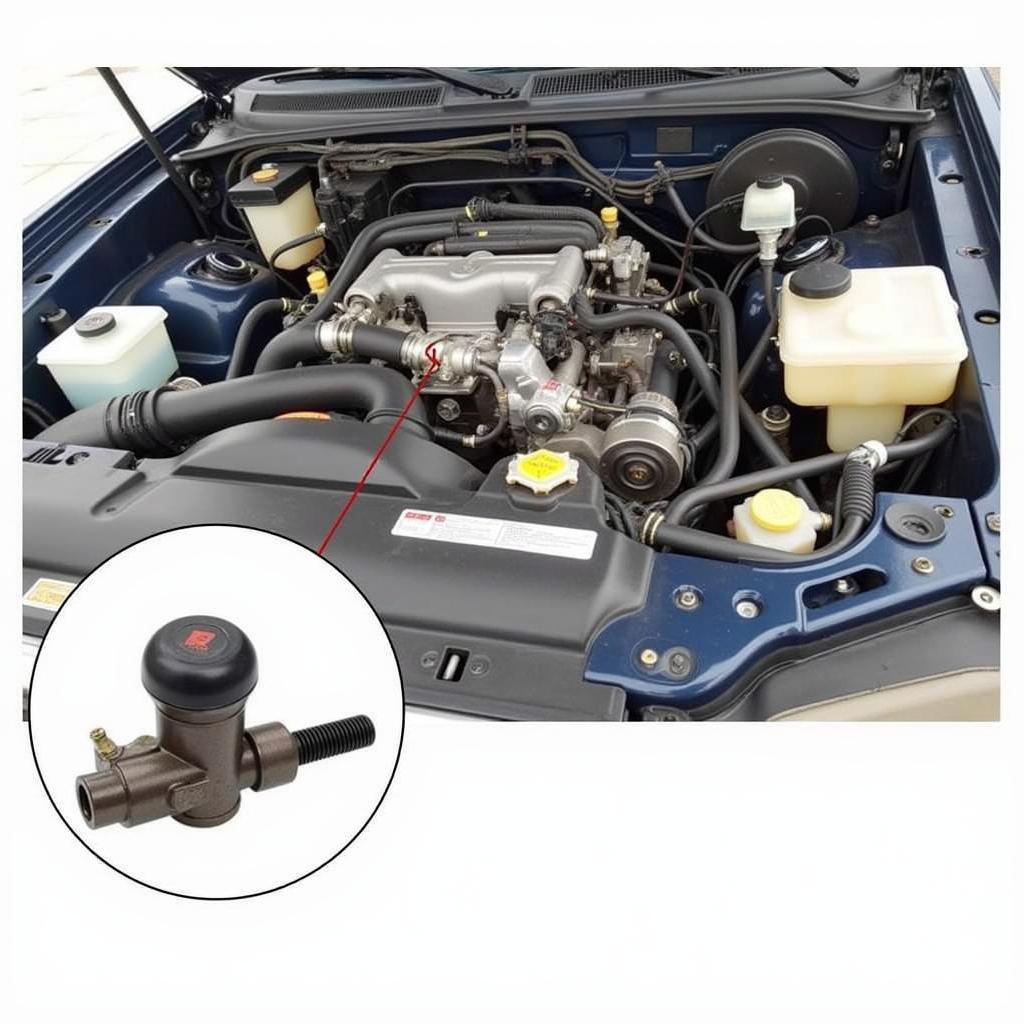The brake warning light on your 2002 GMC Envoy dashboard is a crucial safety feature designed to alert you to potential issues within your braking system. Ignoring this warning could lead to reduced braking performance and potentially dangerous driving conditions. This comprehensive guide will delve into the common causes of a lit brake warning light in a 2002 GMC Envoy and provide you with the knowledge to diagnose and potentially resolve the problem.
Understanding Your Envoy’s Brake Warning Light
Before jumping into troubleshooting, it’s essential to understand what triggers the brake warning light. In most vehicles, including the 2002 GMC Envoy, this light can illuminate for two primary reasons:
-
Engaged Parking Brake: This is the most common and straightforward reason. If your parking brake is even slightly engaged, the warning light will illuminate. Always ensure your parking brake is fully released before driving.
-
Brake System Malfunction: A persistent brake warning light, even with the parking brake disengaged, signals a potential problem within the braking system itself. This could range from low brake fluid levels to more serious issues like a failing master cylinder or ABS module.
Common Causes of a 2002 GMC Envoy Brake Warning Light
Here are some of the most frequent culprits behind a glowing brake warning light in your Envoy:
1. Low Brake Fluid: The Most Common Culprit
Low brake fluid is the most likely reason your brake warning light is on. Brake fluid is the lifeblood of your braking system, transmitting the force from your foot on the brake pedal to the wheels, stopping the vehicle.
How to Check:
- Locate the brake fluid reservoir under the hood. It’s a translucent plastic container with a black cap.
- Check the fluid level. It should be between the “Min” and “Max” lines.
What to Do:
- If the fluid is low, carefully top it off with the correct DOT 3 or DOT 4 brake fluid (refer to your owner’s manual).
Important Note: If you need to add brake fluid frequently, it indicates a leak in the system that requires immediate professional attention.
 Checking Brake Fluid Level
Checking Brake Fluid Level
2. Worn Brake Pads: Time for a Replacement
Brake pads are designed to wear down over time. When they become too thin, a sensor (if equipped) will trigger the brake warning light.
How to Check:
- Look through the spaces between your wheel spokes. You should be able to get a visual on the brake pad.
- If you see less than ¼ inch of brake pad material remaining, it’s time for a replacement.
What to Do:
- It’s recommended to have a professional mechanic replace your brake pads, as it involves working with critical safety components.
 Worn Brake Pads on a 2002 GMC Envoy
Worn Brake Pads on a 2002 GMC Envoy
3. Brake Fluid Leak: A Serious Concern
A brake fluid leak can quickly escalate into a dangerous situation. If the brake fluid level is consistently low, suspect a leak.
How to Check:
- Inspect the ground beneath your parked vehicle for signs of fluid leaks. Brake fluid is typically clear or yellowish and has a slightly oily consistency.
- Trace any visible leaks back to their source, which could be a brake line, caliper, or hose.
What to Do:
- Do not drive your vehicle if you suspect a brake fluid leak! Have it towed to a qualified mechanic immediately for inspection and repair.
4. Faulty ABS Sensor: Impacting Your Anti-Lock System
The Anti-lock Braking System (ABS) prevents wheel lockup during hard braking. A faulty ABS sensor can disrupt this system and trigger the warning light.
How to Diagnose:
- Diagnosing a faulty ABS sensor typically requires a specialized scanner tool. A mechanic can read the error codes stored in your Envoy’s computer to pinpoint the issue.
What to Do:
- Have your vehicle inspected by a mechanic familiar with ABS systems to diagnose and repair the faulty sensor.
5. Issues with the Master Cylinder: The Heart of the System
The master cylinder is a crucial component that converts hydraulic pressure from the brake pedal into force that stops the vehicle.
How to Diagnose:
- A failing master cylinder might exhibit symptoms like a spongy or soft brake pedal, requiring you to press the pedal further down than usual to engage the brakes.
What to Do:
- If you suspect a master cylinder issue, consult with a professional mechanic immediately. This is a complex repair best left to experienced hands.
 2002 GMC Envoy Master Cylinder Location
2002 GMC Envoy Master Cylinder Location
When to Seek Professional Help
While this guide provides basic troubleshooting steps, it’s crucial to remember that your brakes are a critical safety system. If you encounter any of the following, seek professional assistance immediately:
- Persistent Brake Warning Light: If the light remains on after addressing simple issues like low brake fluid or a disengaged parking brake, further diagnosis is necessary.
- Brake Fluid Leaks: Never attempt to drive a vehicle with a suspected brake fluid leak.
- Spongy or Soft Brake Pedal: This indicates a potential problem with the master cylinder or air in the brake lines.
- Unusual Noises When Braking: Grinding, squealing, or clicking noises while braking often signal worn brake components.
Conclusion
Addressing a brake warning light promptly is essential for your safety and the longevity of your 2002 GMC Envoy. While some issues, like low brake fluid, can be simple to resolve, others require the expertise of a qualified mechanic. Remember, never compromise when it comes to your brakes – prioritize safety and seek professional help when needed!
